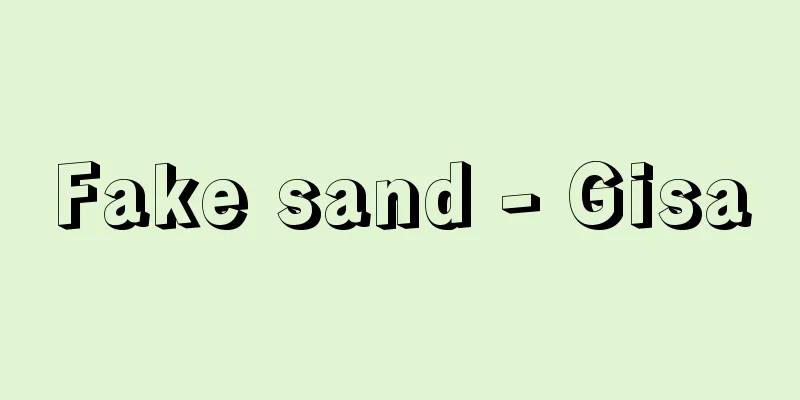Commercial activity

|
Substantially speaking, it is an act related to profit, and formally, it is an act that is stipulated as a commercial act in the Commercial Code and special laws (Trust Law, Mutual Aid Law). The Commercial Code adopts an enumeration system to clarify the scope of its application. Commercial acts are divided into absolute commercial acts, business commercial acts, and ancillary commercial acts. Absolute commercial acts are considered to be commercial acts based on the objective nature of the act, and are naturally considered to be commercial acts regardless of whether the actor is a merchant or not, or whether the act was carried out as a business (Commercial Code, Article 501). For example, a typical example would be buying something cheap, waiting for the price to rise, and selling it at a higher price, earning a profit during that time. Business commercial acts are considered to be commercial acts because a specific act is carried out repeatedly and continuously as a business (Commercial Code, Article 502). For example, speculative leasing such as costume rental shops, manufacturing and processing businesses such as dry cleaning shops and tailors, electricity and gas supply businesses, transportation businesses, construction contracting businesses, publishing, printing and photography businesses, marketplace operations, banking businesses, insurance businesses, warehousing businesses, brokerage and agency businesses, commercial agencies, trusts, mutual aid businesses, etc. Ancillary commercial activities are acts that merchants perform for the purpose of their business that are considered to be commercial activities (Article 503 of the same law). Of these, absolute commercial acts and business commercial acts are the basic concepts that define the concept of a merchant, and are therefore called basic commercial acts, while ancillary commercial acts are derived based on the concept of a merchant, and are called auxiliary commercial acts. Commercial transactions are limited to property-related actions, and do not include status-related actions. Therefore, marriage and adoption are not commercial transactions, even if they are performed for business purposes. Commercial transactions are also obligation-based actions, and real rights actions such as the transfer of ownership of the object of a transaction are only incidental commercial transactions when they are performed as the performance of a commercial transaction. Commercial transactions are, in principle, legal acts, and quasi-legal acts such as notices and demands are not commercial transactions in themselves. Since commercial transactions have characteristics such as speed, profitability, collectiveness, and standardization compared to general legal acts, the Commercial Code contains amendments to the Civil Code's transaction regulations in the Commercial Code section (Commercial Code Articles 504 to 522). For example, these include commercial delegation and agency, formation of contracts, solidarity between multiple parties and guarantors, rights to claim remuneration and interest, commercial statutory interest rates, performance of debts, commercial prescription, permission of forfeited contracts, and liens between merchants. In addition, the Commercial Code contains detailed legal regulations on typical business activities in its commercial activities section. [Toda Shuzo] [Reference] | |Source: Shogakukan Encyclopedia Nipponica About Encyclopedia Nipponica Information | Legend |
|
実質的にいえば、営利に関する行為であり、形式的にいえば、商法および特別法(信託法、無尽業法)で商行為として規定されている行為。商法は、法適用の範囲を明確にするために、列挙主義をとっている。商行為は、絶対的商行為、営業的商行為、附属的商行為に分けられる。絶対的商行為は、行為の客観的性質からみて商行為とされ、その行為者が商人であるか否か、また営業としてなされたか否かを問わず、当然に商行為とされるものである(商法501条)。たとえば、物を安価で仕入れて値上がりを待って高価で販売し、その間の利鞘(りざや)を稼ぐ行為がその典型である。営業的商行為は、特定の行為が営業として反復継続的になされるために商行為とされるものである(同法502条)。たとえば、貸衣装店のような投機賃貸借、クリーニング店や洋服仕立屋のような製造・加工業、電気・ガスの供給事業、運送業、建築の請負業、出版・印刷・撮影業、場屋(じょうおく)営業、銀行業、保険業、倉庫業、仲立・取次業、代理商、信託、無尽などがこれに属する。附属的商行為は、商人が営業のためになす行為を商行為としたものである(同法503条)。 このうち、絶対的商行為と営業的商行為は、商人概念を定める基礎となる概念であるために、これを基本的商行為といい、これに対し附属的商行為は商人概念を前提として導き出されたものであり、これを補助的商行為という。 商行為は財産上の行為に限られ、身分上の行為は含まれない。したがって、かりに営業のためになされたとしても婚姻や養子縁組は商行為にはならない。また、商行為は債権法的な行為であって、取引した目的物の所有権の移転のような物権行為は、商行為たる取引の履行としてなされる場合に附属的商行為となるにすぎない。商行為は原則として法律行為であって、催告・通知のような準法律行為はそれ自身独立して商行為となることはない。商行為は一般の法律行為に対し、迅速性、営利性、集団性、定型性などの特色を有するために、商法は商行為編で、民法の取引規定に対する修正規定を置いている(商法504条~522条)。たとえば、商事委任・代理、契約の成立、多数当事者・保証人の連帯、報酬・利息請求権、商事法定利率、債務の履行、商事時効、流質契約の許容、商人間の留置権の規定などがそれである。そのほか、商法は商行為編で典型的な営業についての詳細な法規制を置いている。 [戸田修三] [参照項目] | |出典 小学館 日本大百科全書(ニッポニカ)日本大百科全書(ニッポニカ)について 情報 | 凡例 |
Recommend
Uncaria
...A climbing woody plant of the Rubiaceae family...
"Music News" - Ongaku Shinpo
…In his symphonies, as shown by the examples of “...
Kirtivarman I (English spelling)
… The Badami Chalukya dynasty (early Western Chal...
The Last Judgement
The idea of the "Last Judgment," in w...
Public investment - koukyoutoushi
This is an investment activity conducted by the c...
Ukrainian Revolutionary Party - Ukrainian Revolutionary Party
...In 1990, the Ukrainian Radical Party was forme...
Girieki - Girieki
...In ancient and medieval times, it referred to ...
Buddington, AF (English spelling) BuddingtonAF
… Granite bodies are classified into two types: t...
Fool's Letter
...A collection of satirical letters in Latin. So...
Fellini - Federico Fellini
Italian film director. Born on January 20th in Ri...
Pedro de Mendoza
… [Keiko Imai] 【history】 In 1516, when Juan Diaz ...
Puppet government
A government that is manipulated by another count...
Surtax - additional tax (English spelling)
In the narrow sense, it is a tax that is levied b...
Wang Jing
…It is unclear to what extent this measure was im...
Cystidia truncangulata (English spelling)
…[Hiroshi Inoue]. … *Some of the terminology that...







![Servant Ordinance (English spelling) Gesindeordnung [Germany]](/upload/images/67ccd7181dda5.webp)

